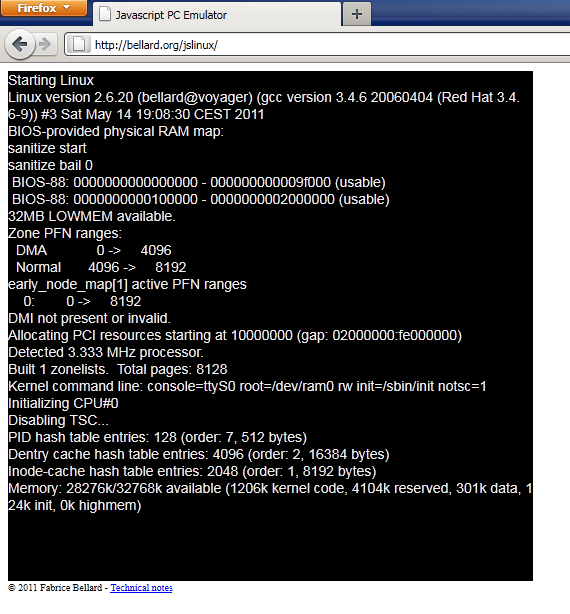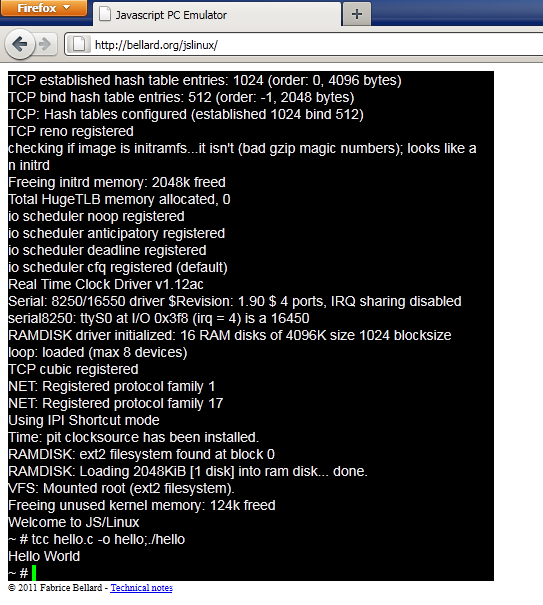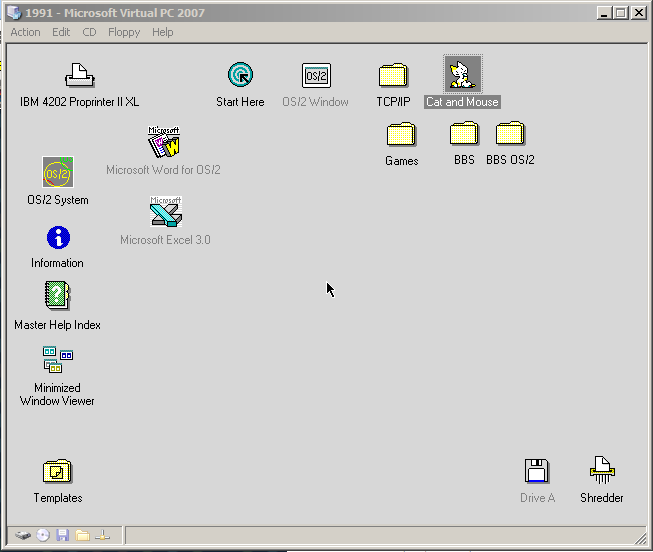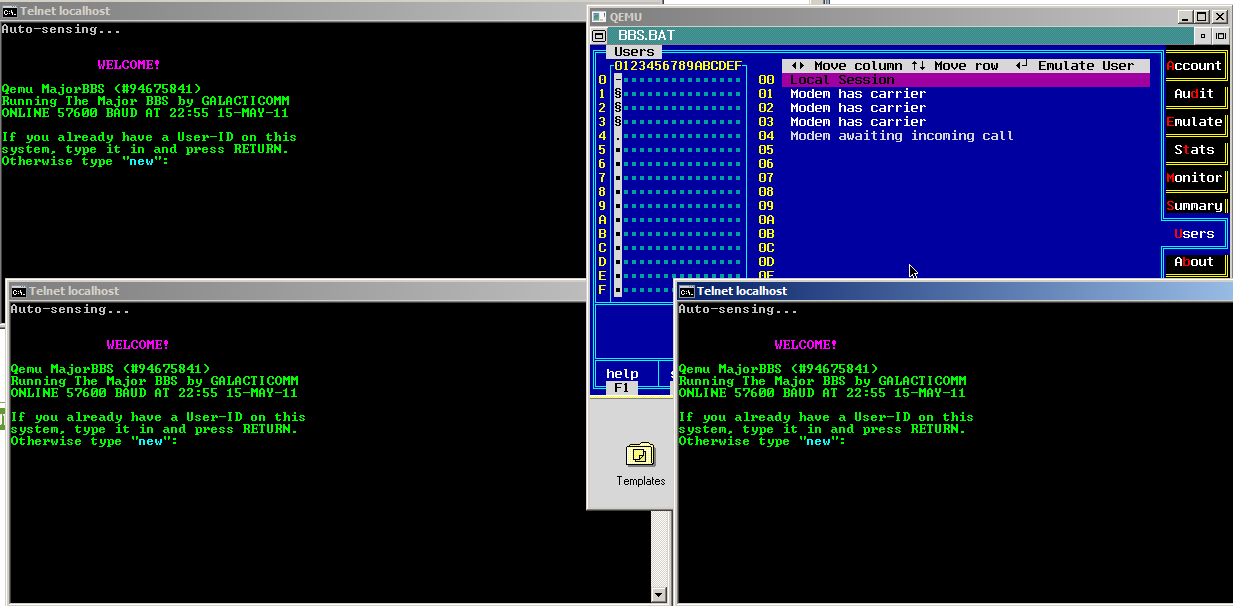Well this should have been ‘easy’ but let me assure you it was not. However this may save someone LOTS of effort if they ever want to get TCP/IP running in a fossil like OS/2 2.0.
First of all OS/2 2.0 will not install in new versions of Qemu. I had to go all the way back to Qemu 0.9.0! Although there is a tonne of floppy images to shuffle, OS/2 2.0 will install somewhat straightforwardly. Once OS/2 is installed, You will almost surely want the xr06100 service pack. I found I was unable to run MS-DOS or WinOS/2 sessions at all without either crashing the system, or trapping the entire OS. But after loading the service pack it works as expected.
Now Qemu supports all kinds of network cards, from the NE2000 ISA, a PCI version of the NE2000, the rtl8139, an AMD PcNET adapter, and a bunch of Intel adapters. And the annoying thing is that the OS/2 driver I have for the AMD PcNET adapter does not work at all. It can’t find the card no matter how much I tried. Which is funny when Netware 3.12 of all things can see it…
I tried all kinds of NE2000 drivers set for 0x300 irq 3 or irq 9 (I changed hw/pc.c to reflect what it was set to) to either not loading, or it’d load and transmit packets, but NEVER receive any packets.
The rtl8039 (ne2k_pci) and rtl8139 would also either not find the card, crash on binding, or send packets and again receive nothing. To say it was very annoying was an understatement.
So I almost gave up, I found some update for the TCP/IP, u64092 went through the needed fun with loaddskf, and finally got working diskettes, and … It still didn’t work.
So in a fit of rage, I removed the 0x300/9 ne2000 in the config, so the next one, the 0x320, IRQ 10 one is in order, and….. It worked! It even works with the Microsoft NE2000 driver!
So I go ahead and modify Qemu 0.14.1 to force the ne2000 to 0x320/IRQ 10, and it works great on the latest version! It’s a shame it doesn’t install… But hopefully you only need to do that once!
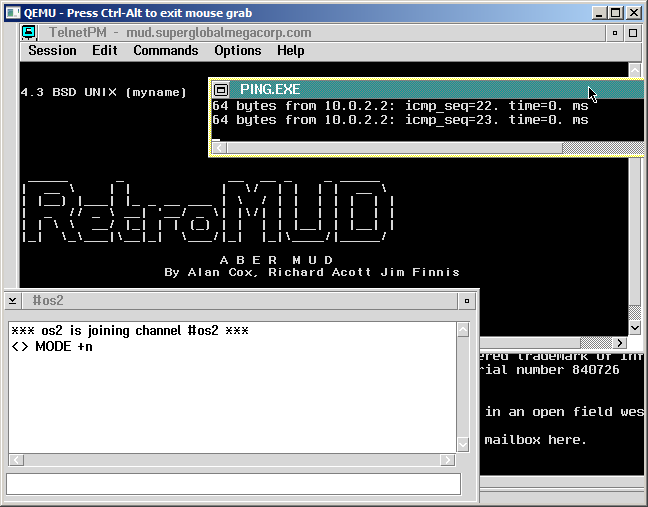 So there we go, saved by the NE2000 again.
So there we go, saved by the NE2000 again.
For anyone crazy enough to reproduce this, here is my config.sys & protocol.ini … I’ve also installed EMX, but I don’t think that really matters…

